The grand opening for a modernized, state-of-the-art Franklin High School on Saturday September 2nd welcomed alumni, families, faculty, Portland Public Schools officials, along with the design and construction teams. It was clear that the school remains a landmark of its southeast neighborhood and offers fond memories to returning alumni from classes as far back as the 1930s.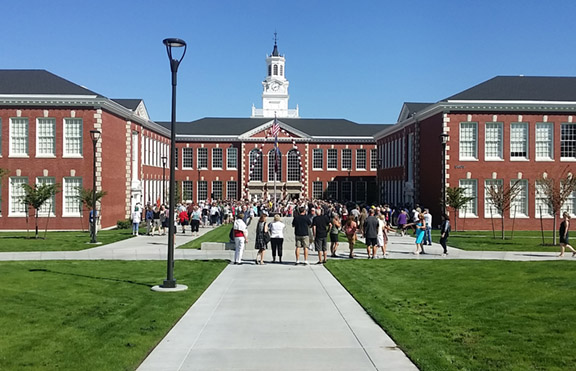 The campus and renovated building have been transformed by the hard work of many dedicated individuals in order to serve future generations. Along with Portland Public Schools and its faculty and students, we at Mayer/Reed share the overwhelming sentiments of pride and optimism for the learning, social and athletic opportunities now possible at Franklin High School. We are truly pleased to have served a significant role in the success of the project.
The campus and renovated building have been transformed by the hard work of many dedicated individuals in order to serve future generations. Along with Portland Public Schools and its faculty and students, we at Mayer/Reed share the overwhelming sentiments of pride and optimism for the learning, social and athletic opportunities now possible at Franklin High School. We are truly pleased to have served a significant role in the success of the project.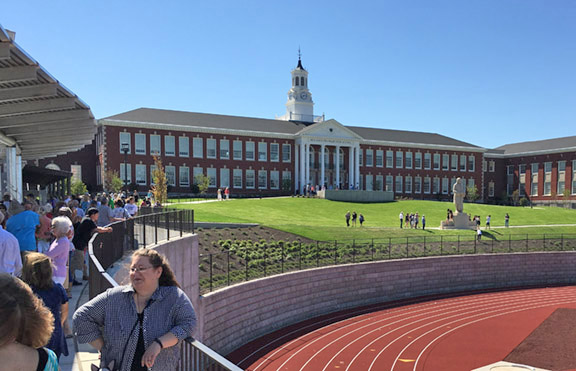
Rail~Volution 2.0 – the Next Revolution
This year’s Rail~Volution Conference in San Francisco was particularly timely and ambitious. The conference grabbed the housing crisis by one ear, public transit by the other ear and pulled them into a room for a little talk—for a week. What ensued, Congressman Earl Blumenuer called Rail~Volution 2.0—the next revolution.
After attending numerous presentations and experiencing first-hand the results of the Bay Area’s overloaded transit system and housing crisis, it was clear to me there were lessons to be learned. Much like the Bay Area, exploding real estate values in the Portland metropolitan region have displaced many with lower and middle incomes to the urban fringe. In these peripheral communities there is a critical need for transit to help people reach their jobs, which tend to cluster in regional centers. In this case, public transportation isn’t a fringe benefit for the sustainably-minded, but a necessity.
While at the conference I saw how affordable housing was incorporated into transit-oriented developments in Oakland and Fremont. These investments did not come easily. Community groups, transit agencies, developers, municipalities and financial institutions each played a critical role in sharing responsibility and leveraging public-private partnerships. Yet the most affordable transportation choices—walking and biking—were not always embraced in the projects. The transit station may link to jobs in the city, but walking to the store is still risky.
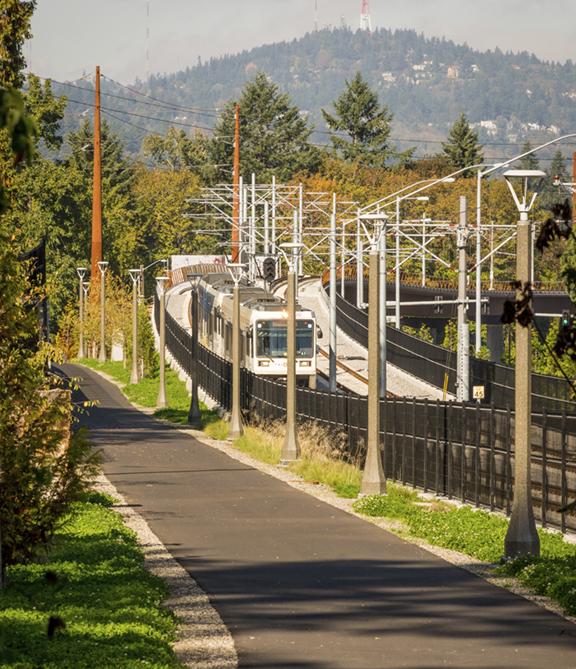
As we grow, let’s not repeat this mistake in our region in the Pacific Northwest. Let’s look beyond buildings and recognize that issues of affordability and geographic equity don’t end at the front door or even with a nearby light rail station. All residents, but particularly those with low and middle incomes, benefit from pedestrian-oriented neighborhoods that provide safe daily connections to schools, daycare, services, shopping and parks. Our cities should adopt holistic policies that plan affordable housing together with improvements to sidewalks, neighborhood greenways, safe route to schools, traffic calming, separated bicycling facilities, recreational trails and the like. Partners in active transportation are well positioned to elevate the conversation from rote affordability to measures of livability. If there is to be a revolution, let’s design an urban environment that sustains it.
Ben Franklin is on the Move
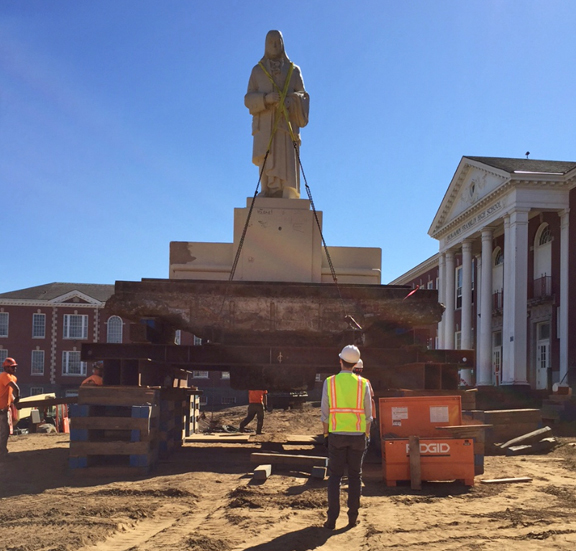 After standing in situ for 100 years, the massive namesake of Franklin High School is on the move. He’s making way for major renovations, accessibility and modernization currently under construction. As the landscape architects of this project, we trust that Ben will find his new position in the main activity area of the campus satisfying, with a proper purview over school activities, sporting events and new site improvements. And who knows, maybe some kite flying?
After standing in situ for 100 years, the massive namesake of Franklin High School is on the move. He’s making way for major renovations, accessibility and modernization currently under construction. As the landscape architects of this project, we trust that Ben will find his new position in the main activity area of the campus satisfying, with a proper purview over school activities, sporting events and new site improvements. And who knows, maybe some kite flying?
Bike Commute Challenge: Pumped Up
I love to ride my bike. I commute every day, I’ve raced for years (and won) and so for me and a core group at Mayer/Reed every month is Bike Commute Challenge month. That’s just how we roll. Sure, we do the official challenge, but I mainly use it as opportunity to send an unsolicited and over-the-top email about the virtues of cycling. That gentle reminder and a promise of cookies usually gets a few of the less inclined to pump up the old tires.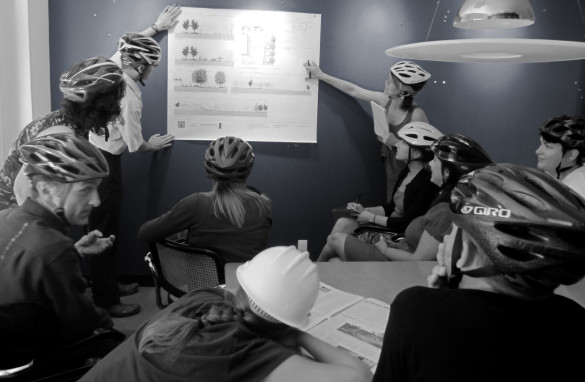 And so out march all of the bikes with their proud owners. Some of us have carbon fiber bikes, others ride electric bikes or bikes with warn-out knobby tires. Other bikes are retro classic racers and there is one much-beloved yard sale “gem.” All the different bikes at Mayer/Reed underscore the different personalities that play through the firm in a magically cohesive way.
And so out march all of the bikes with their proud owners. Some of us have carbon fiber bikes, others ride electric bikes or bikes with warn-out knobby tires. Other bikes are retro classic racers and there is one much-beloved yard sale “gem.” All the different bikes at Mayer/Reed underscore the different personalities that play through the firm in a magically cohesive way.
Cycling is also a terrific way to see our city and region. I think it is the best way actually. Each of us at Mayer/Reed takes great personal pride in our work and cycling is a wonderful way to keep tabs our projects. This isn’t just during construction mind you—we are invested for the long haul. For this reason many of us find cycling is the best way to go. That is just how we roll.
